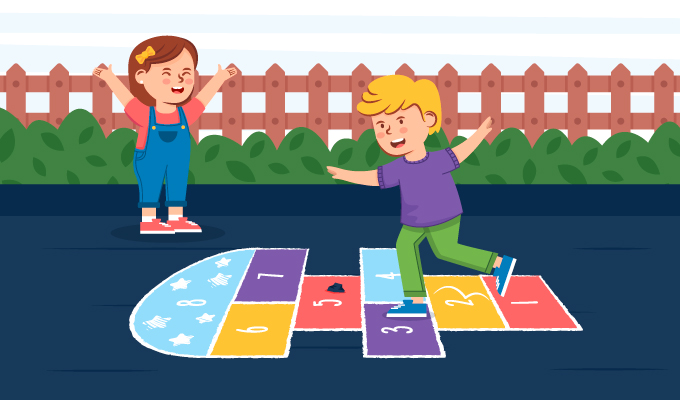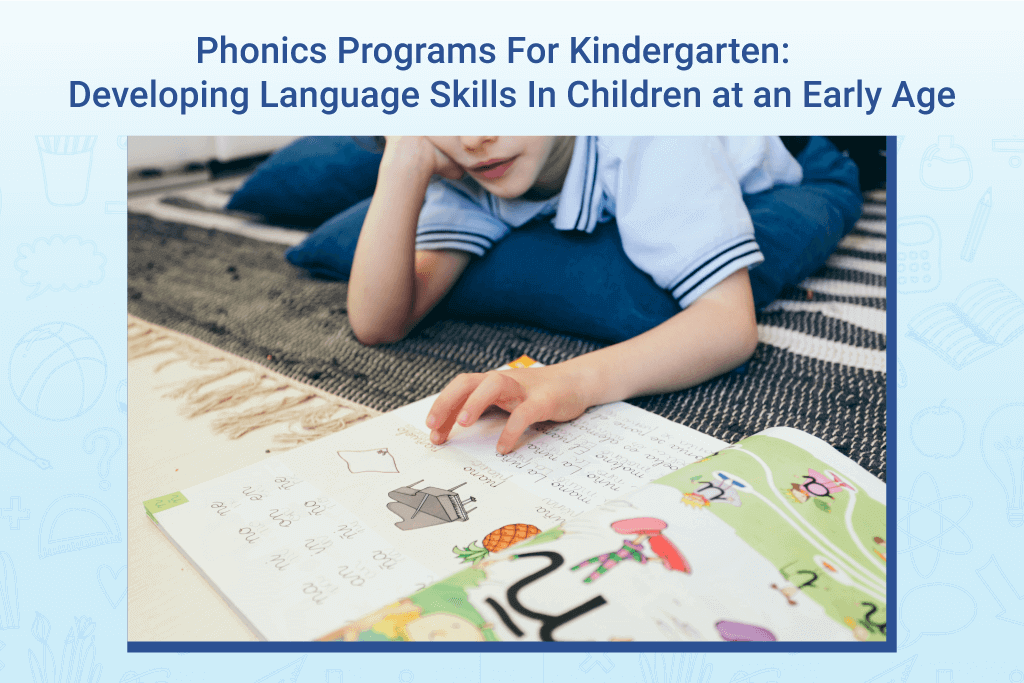Phonics Programs For Kindergarten: Developing Language Skills In Children at an Early Age
The development of language skills in children helps in ensuring their academic success. But there are many students who encounter difficulties while learning and struggle while reading, writing, and speaking. Early intervention with a specialised approach like Phonics can help children overcome these issues.
Phonics Programs For Kindergarten run on a multi-sensory approach to impart grammar and language abilities to children. This approach is working wonders in addressing language difficulties. Not only this, but Phonics also delivers several other remarkable benefits to young learners.
In this blog, we will look into how Phonics programs contribute to a child’s academic success and overall development.
Discover the Best Phonics Programs for Kindergarten Success
A] What is Phonics?
If your child is struggling with language development, our dedicated Phonics programs for children can be the solution. Phonics is an innovative approach to teaching language and grammar skills to students.
Phonics is a multi-sensory approach that engages children through various senses. So, the learning process is more enjoyable and engaging for them.
Phonics focuses on teaching through segmentation sounds so that children can break down and decode words. The programme focuses on helping children establish connections between sounds and letters with the help of sound manipulation.
Phonics learning programs have brought exceptional results in several educational settings. These programs have helped countless kindergarteners develop superior language skills at an early age.
B] The Benefits of Phonics Programs For Kindergarten
We have already acknowledged that phonics programs offer a lot of benefits. Research has shown that early exposure to phonics for children can lead to better literacy outcomes later in life. Let’s take a look at the benefit of phonics and how it can help your child develop excellent language skills.
1. Multi-Sensory Learning
Phonics utilises a multisensory approach. It engages multiple senses, such as sight, hearing, and touch. Multi-sensory learning helps in learning retention. Children can make stronger connections in their brains when they see, hear, and feel the sounds.
2. Systematic And Sequential
Every new lesson in this approach builds upon the previous one. Whenever children learn a new skill, they can easily associate them with what they learned before. This practice helps them establish a strong foundation in phonics.
3. Phonemic Awareness Development
Phonics helps in developing the ability to recognize individual sounds in words. Children can blend them together to form words and segment them into individual sounds. It makes them proficient in reading and spelling.
4. Decodable Texts
The learning program provides students books that are designed to match what they are learning in their lessons. These books are special because they have words that follow the rules students are being taught in their phonics lessons. This is important because it lets students practise the phonics skills they are learning in a real reading context.
So, in a nutshell, the program provides books that go hand-in-hand with what students are learning about phonics, making it easier for them to practise and get better at reading.
5. Confidence Building
This multi-sensory approach engages multiple senses (sight, hearing, touch) for effective reading instruction. It fosters independent reading, boosting self-confidence and belief in students’ abilities. Increased confidence will encourage your kids in tackling challenging texts, further enhancing their reading skills and motivation.
6. Engaging And Fun


Phonics is a dynamic and engaging educational method that incorporates interactive elements such as games, songs, and hands-on activities. By integrating these enjoyable components, phonics transforms learning into a fun and thrilling experience for children. It not only captures their interest but also promotes active participation and deeper understanding. This interactive approach fosters a positive attitude towards learning and helps kids develop strong foundational literacy skills.
7. Transferable Skills
Phonics learning programs offer students more than just reading and writing abilities. Their lessons on grammar for kids go beyond correct sentence structure; it equips them with valuable language skills that enhance communication and language proficiency.
These skills empower students to excel not only in reading and writing but also in expressing themselves effectively. A strong grasp of phonics principles aids in comprehension, articulation, and overall language development, which are valuable skills applicable in various aspects of life and education.
8. Readiness For Further Learning
Children who undergo phonics training build strong language skills. They become better prepared for future academic pursuits. Proficient reading and writing help them lay the foundation for success in various subjects.
C] Success Story: A Testimonial From Phonic Smart, A Phonics Learning Institute
Phonic Smart, a phonics learning institute in Mumbai, offers phonics programs for kindergarten that can help your child overcome their learning difficulties. The teachers at Phonic Smart are highly efficient in helping students develop phonics awareness.
Here is a testimonial from a parent whose child was able to overcome their learning difficulties with Phonic Smart’s Phonics learning program.
“Phonic Smart helped my child to overcome difficulties in spelling. The children like class as they learn in a friendly & creative atmosphere. Getting feedback after every session helps parents! Thanks to all teachers”
– Mrs. Kulkarni
Discover the Best Phonics Programs for Kindergarten Success
Conclusion
To summarise, phonics training programs help teachers and parents in developing language skills in children at an early age. These courses help in building a strong foundation and empowering students to succeed academically. Children who undergo this training break free of the barriers of communication and gain confidence in themselves.
Parents, educators, and policymakers should consider implementing this approach to empower children with language difficulties. Reach out to us to know more about our phonic courses for children and brighten the future of your young ones.

